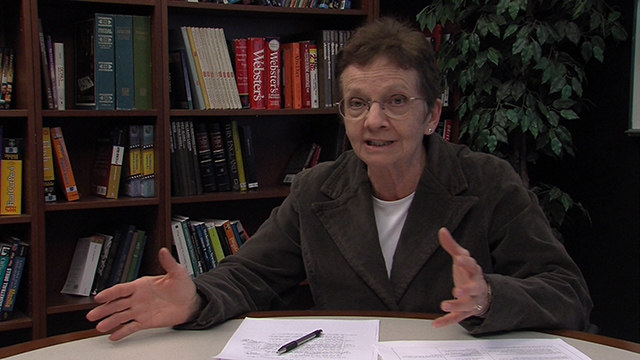We are a husband/wife team who started Isakson Literary after 39 years working in public schools in three states and universities in two states. We retired from daily teaching and counseling, but realized we still want to share what we have learned about improving academic reading.
Our Philosophy about Academic Reading:
The essential tools of academic learning are reading, writing, viewing, listening, speaking, and thinking. When you feel you do not learn as well from academic reading as you’d like, we believe you can acquire, and fairly quickly too, important strategies to learn from text with engagement, deep learning, and retention. With determination and armed with know-how, you can become an effective and efficient learner who controls and enjoys your learning, even at high levels of difficulty.
The Philosophy behind the Face-to-Face Courses
We believe you learn the reading strategies best in authentic, relevant settings. Before class for the Advanced Reading for College Success course, you read an explanation of the strategy, see a demonstration of it, and actually practice it on the very texts you need to read for your other classes. You use a ThinkSheet to guide you through the process step by step at first (but you stop using it later as soon as possible so you can adapt the strategy to each unique reading situation). Then you come to class where the time is used to (1) address questions, (2) pull together what you and classmates have learned by trying the strategy, (3) trouble-shoot challenges in applying the strategy to particular text situations, (4) practice again on your own texts with the instructor roving and coaching you to assure metacognitive thinking, and (5) share and debrief the practice experience. In this course, you learn the essential strategies but also the advanced ones that demand critical and creative thinking–and lead you to learn from text in scholarly ways.
For the Surviving College Reading course, the same philosophy applies but more support is supplied: less pre-class preparation is expected, more demonstration, shared practice, and coaching are provided in class, and double the time is given to learn each strategy well. As a result you learn fewer strategies than are taught in the advanced course, but these are the essential, most-often used strategies.
The Philosophy behind the Online Courses
We believe that the above aspects of learning should apply to online learning also. They are modified for the online environment. Each module has six parts that accomplish best practices shown by instructional-design research: (1) recognize the problem the strategy will ameliorate–bring into focus a common problem with academic reading, (2) tell how you have dealt with this problem in the past–activate your prior experiences and knowledge, (3) read a brief explanation of the strategy geared to help you handle the problem, (4) view a video demonstration of the strategy–observe someone actually doing the strategy to bring the details of the processes into reality for you, (5) apply the strategy on one of your own texts with a ThinkSheet to guide you through the process–learn by doing, and (6) reflect on the strategies you used to process that text, share your ThinkSheet, and respond to the instructor’s feedback and to the posts of others (if you take the course with a cohort of learners)–step back to process metacognitively what you did, how it worked for you, and what further understanding you need to use and modify the strategy.
The Philosophy behind the Self-Instructional Guides
The guides are based on the same theoretical framework described above for the face-to-face and online courses. We believe you can support your own learning if you are diligent, determined, and disciplined. With the help of the handbook for explanations, the videos for demonstrations of the strategies, and the ThinkSheets to guide your initial attempts to use the strategies, you can teach yourself the strategies even without feedback from an instructor.
Our Teaching Philosophy about Relevance
Although impressed with many of the texts designed to improve college reading, we do not recommend them because we believe you need to get right in and try the essential strategies on your own texts with coaching – instead of doing lots of reading about reading and doing drills on texts irrelevant to your immediate reading and study needs.
We believe you LEARN best BY DOING with just enough support to experience the strategies on your own academic texts–those you care about and need to know well.
About Us
Marné B. Isakson Ph.D.

Marné earned a bachelor’s in English from Brigham Young University, a master’s in Educational Psychology and Research from Bucknell University, and a Ph.D. in Instructional Science–Literacy Education from Brigham Young University. She has an ESL endorsement (English as a Second Language). Her dissertation was awarded the Outstanding Dissertation of the Year by the International Reading Association: Learning from Practice: Supporting the Literacy Learning of Reluctant and Less Proficient Adolescent Readers. She is still involved in research projects exploring college reading.
EXPERIENCE: Her career since 1968 has focused on literacy learning. Vita (selected)
College:
- Taught graduate courses for three universities as adjunct instructor: Reading Assessment and Intervention, Educational Research (with focus on qualitative research in literacy learning), Teaching Reading in the Content Areas, Introduction to the Reading Process, Supporting Readers in Secondary Classrooms (for state office of education), and Comprehending Narrative and Expository Text. (for Wichita State University, Utah State University, and Brigham Young University.
- Created and coordinated two undergraduate college reading courses: Advanced Reading Strategies for College Success and Surviving College Reading.
- Taught writing courses to English Language Learners at the university’s English Language Center.
- Presented annual workshops for new faculty: “Scholarly Reading for Busy Academics” and “Five Keys to Helping Students Read Difficult Texts”
- Presented workshops for students: sponsored by academic departments to students majoring in that discipline; to student mentors; to graduate students; to student clubs, and to drop-in seminars sponsored by the university’s counseling center.
- Taught remedial courses for the Learning Resource Center at Utah Technical College (renamed later Utah Valley University): reading, writing, spelling, grammar, study skills, vocabulary, and penmanship.
Public Schools
- Developed curriculum and taught reading/writing courses geared to struggling adolescent readers, including work in regular and alternative high schools and junior high schools in Kansas and Utah. Was the literacy specialist in a junior high school in Wichita Kansas.
- Taught regular English courses 7th-12th grades in Utah. Also, developed remedial and regular English courses employing service-learning projects: “Reading and Writing for Social Action.”
- Developed tutoring curriculum and trained college-age and community volunteer reading tutors in TAIRS (Tutoring Adolescent to Improve Reading Strategies) and TAWS (Tutoring Adolescent WriterS). Trained AmeriCorps tutors. Trained Latino high school and middle school students to do cross-age reading tutoring of younger Latino children.
- Received multiple awards and recognition for her literacy teaching in Kansas and Utah, including Utah Reading Teacher of the Year.
- Presented many in-service literacy workshops for elementary and secondary teachers.
- Was remedial reading teacher for grades 1-6, reading readiness teacher of a pre-first class, and Diagnostic-Prescriptive Support Teacher diagnosing learning problems, planning remedial programs, and assisting classroom teachers.
- Was a curriculum specialist for the Provo School District with her tasks focusing on K-12 literacy, gifted education, and foreign language programs.
- Initiated and led Teacher Inquiry Groups for high school teachers.
- Did private tutoring in reading for students in 2nd – 9th grades which included diagnostic assessment and report writing in New York, Kansas, and Utah.
- Was an officer at the local (Utah County) and state level (Utah) for the International Reading Association and presented at local, state, and national conferences.
“Who I am as a Literacy Teacher”
Richard L. Isakson Ph.D.

EDUCATION
Richard earned a bachelor’s degree in psychology from Weber State University, a master’s in educational psychology and research from Bucknell University, a Ph.D. in educational psychology from Cornell University where his dissertation focused on psychological processes in reading. He also completed additional graduate coursework in counseling psychology from Wichita State University leading to an internship in clinical psychology and subsequent licensure as a psychologist in the state of Utah.
EXPERIENCE
Richard L. Isakson, Ph.D., has 39 years experience in higher education. He was a professor of educational psychology at Wichita State University for nine years and then was a clinical professor of counseling psychology at Brigham Young University. The psychological processes involved in reading comprehension was the focus of his doctoral dissertation at Cornell and remained a research interest for him at Wichita State and BYU. While at BYU, Richard provided psychological counseling to students and developed and directed a training program for doctoral students in the counseling center. For the last seven years at BYU, he also collaborated with Marne’, his wife, in developing, teaching, and evaluating an advanced reading course for college students. He received the Karl G. Maeser Professional Faculty Award for Excellence at BYU in 2010. At retirement in September 2013 he was awarded Emeritus Clinical Faculty Status from BYU. He continues to work to improve college reading. VITA (selected)
